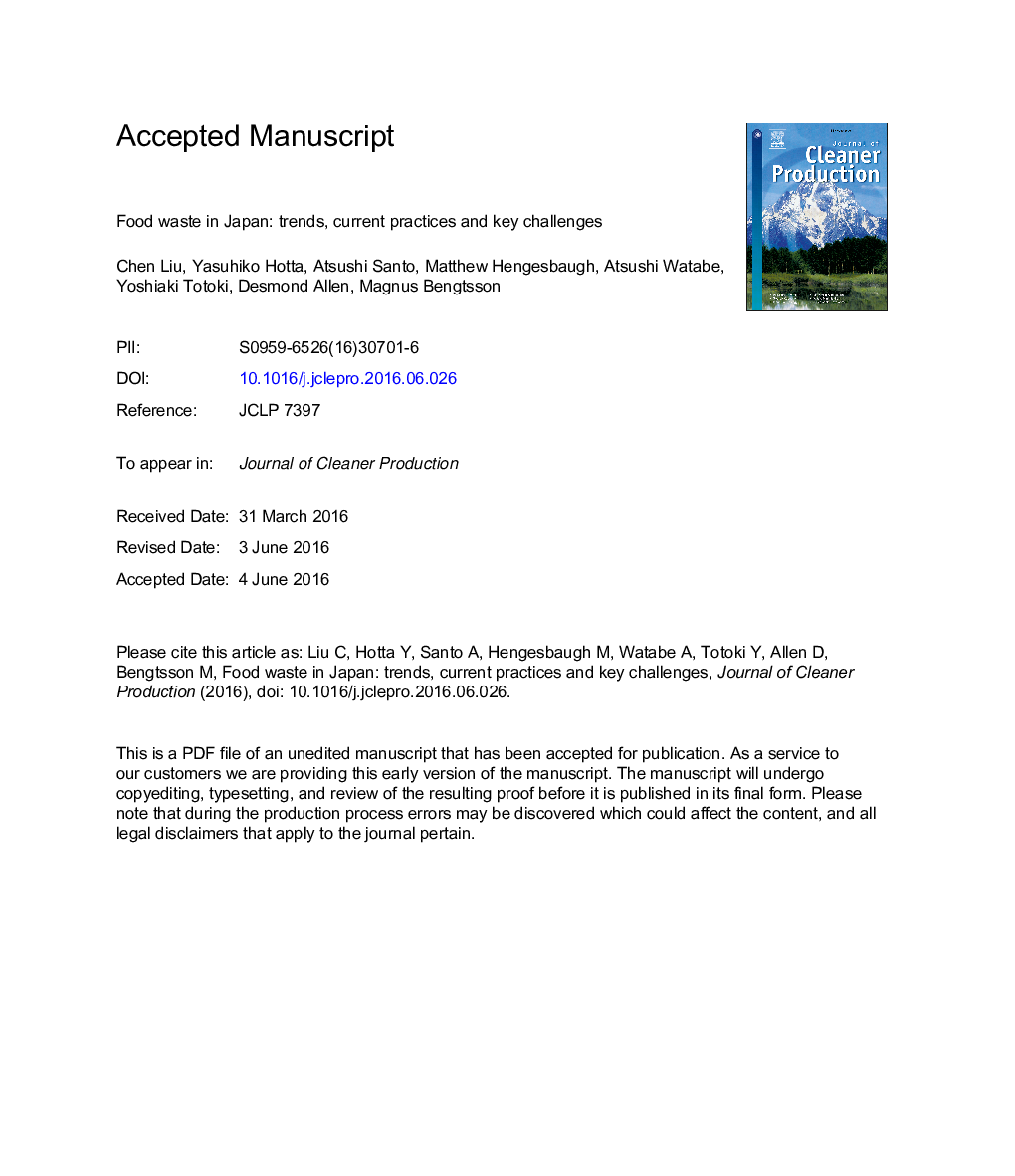| کد مقاله | کد نشریه | سال انتشار | مقاله انگلیسی | نسخه تمام متن |
|---|---|---|---|---|
| 8101700 | 1522116 | 2016 | 31 صفحه PDF | دانلود رایگان |
عنوان انگلیسی مقاله ISI
Food waste in Japan: Trends, current practices and key challenges
ترجمه فارسی عنوان
زباله های مواد غذایی در ژاپن: روند، شیوه های فعلی و چالش های کلیدی
دانلود مقاله + سفارش ترجمه
دانلود مقاله ISI انگلیسی
رایگان برای ایرانیان
کلمات کلیدی
از دست دادن مواد غذایی و زباله، زنجیره تامین مواد غذایی، قانون بازیافت زباله های مواد غذایی، مدیریت زباله، ژاپن،
موضوعات مرتبط
مهندسی و علوم پایه
مهندسی انرژی
انرژی های تجدید پذیر، توسعه پایدار و محیط زیست
چکیده انگلیسی
Food waste remains a critical issue in Japan, especially in light of the country's low food self-sufficiency rate and shortage of available landfill sites for waste disposal. In order to evaluate options for further preventing and mitigating food waste in Japan, we analyzed food waste trends by estimating the disparity between calorie/protein supply and intake, and clarified the current status of waste in the Japanese food supply chain, with a view towards providing policy recommendations based on recent official published data and reports on food waste. We show that food waste measured between 1960 and 2012 in Japan can be divided into three distinct periods: low levels of food waste were observed from 1960 through the mid-1970s, increasing food waste during mid-1970s through the late-1990s, and decreasing levels of food waste since 2001. Average calorie and protein loss between food supply and intake were 22% and 15% respectively in 2012. Of total food waste in the food supply chain in 2011, 43% was recycled or reduced. Presently another 21.52 million tons could potentially be recycled or reduced by further efforts, with our data indicating that 9.52 million tons could be achieved by households, 4.24 by food business industries, 3.95 through storage and transportation, and 3.81 by agricultural producers. Accordingly, although Japan's Food Waste Recycling Law and related initiatives have made progress in encouraging recycling and waste minimization among food business industries since 2001, further efforts to systematically reduce and recycle food wastes are urgently needed across all other stages in the food supply chain, especially at the consumer level. We propose applying an evidence-based approach to food education, strengthening integrated municipal solid waste management, improving source separation of food waste by residents and related stakeholders, promoting cross-sectoral alliances and encouraging targeted commitments as strategies to prevent and mitigate food wastes.
ناشر
Database: Elsevier - ScienceDirect (ساینس دایرکت)
Journal: Journal of Cleaner Production - Volume 133, 1 October 2016, Pages 557-564
Journal: Journal of Cleaner Production - Volume 133, 1 October 2016, Pages 557-564
نویسندگان
Chen Liu, Yasuhiko Hotta, Atsushi Santo, Matthew Hengesbaugh, Atsushi Watabe, Yoshiaki Totoki, Desmond Allen, Magnus Bengtsson,
